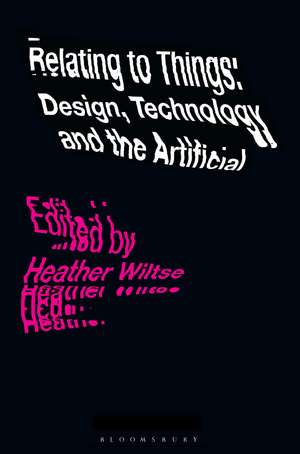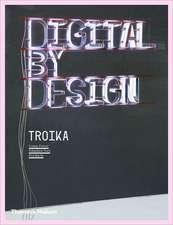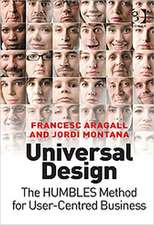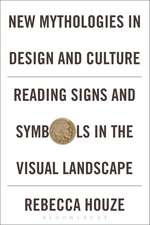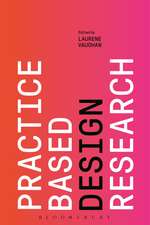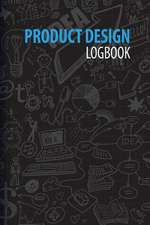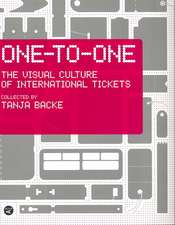Relating to Things: Design, Technology and the Artificial
Editat de Heather Wiltseen Limba Engleză Hardback – 13 mai 2020
Preț: 600.46 lei
Preț vechi: 859.77 lei
-30% Nou
Puncte Express: 901
Preț estimativ în valută:
114.91€ • 119.82$ • 95.50£
114.91€ • 119.82$ • 95.50£
Carte disponibilă
Livrare economică 28 februarie-14 martie
Preluare comenzi: 021 569.72.76
Specificații
ISBN-13: 9781350124257
ISBN-10: 1350124257
Pagini: 304
Ilustrații: 68 bw illus
Dimensiuni: 156 x 234 x 23 mm
Greutate: 0.64 kg
Editura: Bloomsbury Publishing
Colecția Bloomsbury Visual Arts
Locul publicării:London, United Kingdom
ISBN-10: 1350124257
Pagini: 304
Ilustrații: 68 bw illus
Dimensiuni: 156 x 234 x 23 mm
Greutate: 0.64 kg
Editura: Bloomsbury Publishing
Colecția Bloomsbury Visual Arts
Locul publicării:London, United Kingdom
Caracteristici
Addresses current debates and concerns around the technology that we live and interact with - security cameras, Alexa, robot vacuum cleaners, videogames and augmented reality games
Notă biografică
Heather Wiltse is Associate Professor of Design at Umeå University, Sweden. She is the author, with Johan Redström, of Changing Things: The Future of Objects in a Digital World (Bloomsbury, 2018).
Cuprins
IntroductionHeather Wiltse (Umeå University, Sweden)I: Caring for Things That Care for Us1. Privacy as Care: An Interpersonal Model of Privacy Exemplified by Five Cases in the Internet of ThingsDylan Wittkower (Old Dominion University, USA)2. Attachment to Things, Artifacts, Devices, Commodities: An Inconvenient Ethics of the OrdinaryMichel Puech (Paris-Sorbonne University, France)3. The New Assisted Living: Caring for Alexa Caring for UsDiane Michelfelder (Macalester College, USA)II: Learning from Things That Learn from Us4. Handling Things that Handle Us: Things Get to Know Who We Are and Tie Us Down to Who We WereBruno Gransche (University of Siegen, Germany)5. Can Ethics be Learned? Videogames as an Ethical SandboxFanny Verrax (independent scholar and consultant, France)6. Casting Things as Partners in Design: Toward a More-than-Human Design PracticeElisa Giaccardi (TU Delft, Netherlands)III: Controlling Things That Control Us7. Hostile Design and the Materiality of SurveillanceRobert Rosenberger (Georgia Institute of Technology, USA)8. A Tool for the Impact and Ethics of Technology: The Case of Interactive Screens in Public SpacesSteven Dorrestijn (Saxion University of Applied Sciences, Netherlands)9. Postphenomenology of Augmented RealityGalit Wellner (Tel Aviv University, Israel)IV: Revealing Things That Reveal Us10. Imagining Things: Unfolding the "of" in Philosophy of Technology, through Object-Oriented OntologyYoni Van Den Eede (Free University of Brussels, Belgium)11. The Disappearing Acts of the Morse Things: A Design Inquiry into the Withdrawal of ThingsRon Wakkary (Simon Fraser University, Canada; TU Eindhoven, Netherlands), Sabrina Hauser (Simon Fraser University, Canada) and Doenja Oogjes (Simon Fraser University, Canada)12. Revealing Relations of Fluid AssemblagesHeather Wiltse (Umeå University, Sweden)13. Designing Networks that Reveal ThemselvesHolly Robbins (TU Delft, Netherlands)14. Reflection and CommentaryErik Stolterman (Indiana University, USA)
Recenzii
This is one of the first collections to take seriously our changing relationship with non-human actors, yet in doing so it is also a profoundly human book. As disturbing as it is enlightening, Relating to Things is full of insight and curiosity about what it means to live in an increasingly sentient material world. Essential reading for anybody trying to make sense of the politics of relationality in design and the coming world of active objects.
Relating to Things is an extraordinarily rich exploration of how humans and technologies act, depend upon, and guide one another. Emerging at the intersection of philosophy of technology and design studies, this collection helps us to see how we have come to relate to our creations and how our freedom to design and redesign these relations can open the door to very different futures. This is an essential read for those wanting to gain a deeper sense of how to live with technologies that ask more, give more, take more, and share more with us every day.
Relating to Things is an extraordinarily rich exploration of how humans and technologies act, depend upon, and guide one another. Emerging at the intersection of philosophy of technology and design studies, this collection helps us to see how we have come to relate to our creations and how our freedom to design and redesign these relations can open the door to very different futures. This is an essential read for those wanting to gain a deeper sense of how to live with technologies that ask more, give more, take more, and share more with us every day.
